
Chemistry Careers and Jobs
Chemists study substances at the atomic and molecular levels and analyze the ways in which the substances interact with one another.
What they do
Chemists use their knowledge to develop new and improved products and to test the quality of manufactured goods.
Chemists typically do the following:
- Plan and carry out complex research projects, such as the development of new products and testing methods
- Instruct scientists and technicians on proper chemical processing and testing procedures, including ingredients, mixing times, and operating temperatures
- Prepare solutions, compounds, and reagents used in laboratory procedures
- Analyze substances to determine their composition and concentration of elements
- Conduct tests on materials and other substances to ensure that safety and quality standards are met
- Write technical reports that detail methods and findings
- Present research findings to scientists, engineers, and other colleagues
Some chemists work in basic research. Others work in applied research. In basic research, chemists investigate the properties, composition, and structure of matter. They also experiment with combinations of elements and the ways in which they interact. In applied research, chemists investigate possible new products and ways to improve existing ones. Chemistry research has led to the discovery and development of new and improved drugs, plastics, fertilizers, flavors, batteries, and cleaners, as well as thousands of other products.
Chemists use computers and a wide variety of sophisticated laboratory instrumentation for modeling, simulation, and experimental analysis. For example, some chemists use three-dimensional computer modeling software to study the structure and properties of complex molecules.
If a chemist specializes in green chemistry, he or she will design chemical processes and products that are environmentally sustainable. Green chemistry processes minimize the creation of toxins and waste.
Most chemists work as part of a team. The number of scientific research projects that involve multiple disciplines is increasing, and it is common for chemists and materials scientists to work on teams with other scientists, such as biologists, physicists, computer specialists, and engineers. For example, in pharmaceutical research, chemists may work with biologists to develop new drugs and with engineers to design ways to mass-produce the new drugs. For more information, see the profiles on biochemists and biophysicists, microbiologists, zoologists and wildlife biologists, physicists and astronomers, computer and information technology occupations, and engineering occupations.
Because chemists typically work on research teams, they need to be able to work well with others toward a common goal. Many serve in a leadership capacity and need to be able to motivate and direct other team members.
Chemists often specialize in a particular branch of the field. The following are examples of types of chemists:
Analytical chemists determine the structure, composition, and nature of substances by examining and identifying their various elements or compounds. They also study the relationships and interactions among the parts of compounds. Some analytical chemists specialize in developing new methods of analysis and new techniques for carrying out their work. Their research has a wide range of applications, including food safety, pharmaceuticals, and pollution control.
Forensic chemists analyze evidence for clues to help solve crimes. These chemists aid in criminal investigations by testing evidence, such as DNA, and interpreting their findings. Not only is human DNA evidence tested; DNA evidence can be used to exonerate animals suspected of having killed people or other animals. These chemists work primarily in laboratories, though they sometimes testify in court.
Inorganic chemists study the structure, properties, and reactions of molecules that do not contain carbon, such as metals. They work to understand the behavior and the characteristics of inorganic substances. Inorganic chemists figure out how these materials, such as ceramics and superconductors, can be modified, separated, or used in products.
Medicinal chemists research and develop chemical compounds that can be used as pharmaceutical drugs. They work on teams with other scientists and engineers to create and test new drug products. They also help develop new and improved manufacturing processes to effectively produce new drugs on a large scale.
Organic chemists study the structure, properties, and reactions of molecules that contain carbon. They also design and make new organic substances that have unique properties and applications. These compounds, in turn, have been used to develop many commercial products, such as pharmaceutical drugs and plastics.
Physical chemists study the fundamental characteristics of how matter behaves on a molecular and atomic level and how chemical reactions occur. From their analyses, physical chemists may develop new theories, such as how complex structures are formed. Physical chemists often work closely with materials scientists, to research and develop potential uses for new materials.
Theoretical chemists investigate theoretical methods that can predict the outcomes of chemical experiments. Theoretical chemistry encompasses a variety of specializations, although most specializations incorporate advanced computation and programming. Some examples of theoretical chemists are computational chemists, mathematical chemists, and chemical informaticians.
A growing number of chemists work in interdisciplinary fields, such as biochemistry and geochemistry. For more information, see the profiles on biochemists and biophysicists and geoscientists.
Work Environment
Chemists typically work in laboratories and offices, where they conduct experiments and analyze their results. In addition to working in laboratories, they work with engineers and processing specialists in industrial manufacturing facilities. Some chemists also work in these facilities and usually are responsible for monitoring the environmental conditions at the plant.
Chemists who work for manufacturing companies may have to travel occasionally, especially if their company has multiple facilities. Others may work outdoors to collect samples and conduct onsite analysis of air, soil, or water.
How to become a Chemist and/or Materials Scientist
Chemists need at least a bachelor’s degree in chemistry or a related field. However, a master’s degree or Ph.D. is required for many research jobs.
A bachelor’s degree in chemistry or a related field is needed for entry-level chemist or materials scientist jobs. Research jobs require a master’s degree or a Ph.D. and also may require significant levels of work experience. Chemists with a Ph.D. and postdoctoral experience typically lead basic- or applied-research teams. Combined programs, which offer an accelerated bachelor’s and master’s degree in chemistry, also are available.
Many colleges and universities offer degree programs in chemistry that are approved by the American Chemical Society. Some colleges offer materials science as a specialization within their chemistry programs, and some engineering schools offer degrees in the joint field of materials science and engineering. High school students can prepare for college coursework by taking chemistry, math, and computer science classes.
Undergraduate chemistry majors typically are required to take courses in analytical, organic, inorganic, and physical chemistry. In addition, they take classes in math, biological sciences, and physics. Computer science courses are essential because chemists and materials scientists need computer skills to perform modeling and simulation tasks, manage and manipulate databases, and operate computerized laboratory equipment.
Laboratory experience through internships, fellowships, or work–study programs in industry is also useful. Some universities offer cooperative programs in which students gain work experience while pursuing a degree.
Graduate students studying chemistry commonly specialize in a subfield, such as analytical chemistry or inorganic chemistry. For example, those interested in doing research in the pharmaceutical industry usually develop a strong background in medicinal or organic chemistry.
Pay
The median annual wage for chemists was $77,630 in May 2019. The median wage is the wage at which half the workers in an occupation earned more than that amount and half earned less. The lowest 10 percent earned less than $44,460, and the highest 10 percent earned more than $133,690.
Job Outlook
Overall employment of chemists is projected to grow 5 percent from 2019 to 2029, faster than the average for all occupations.
Employment of chemists is projected to grow 5 percent. In pharmaceutical and medicine manufacturing, chemists will be needed to develop nanotechnology for medicinal uses. And in chemical manufacturing, these workers will be needed for improving environmental safety in the workplace and community.
Similar Job Titles
Materials Scientist, Micro Electrical/Mechanical Systems Device Scientist (MEMS Device Scientist), Polymer Materials Consultant, Research and Development Scientist (R and D Scientist), Research Fellow, Research Scientist, Scientist, Air Quality Chemist, Analytical Chemist, Chemical Laboratory Scientist, Forensic Chemist, Forensic Scientist, Quality Control Chemist (QC Chemist), Research Chemist, Senior Chemist
Related Occupations
Materials Engineer, Biochemical Engineer, Validation Engineer, Chemical Technician, Medical and Clinical Laboratory Technologist, Natural Sciences Manager, Chemistry Teacher-Postsecondary
More Information
The trade associations listed below represent organizations made up of people (members) who work and promote advancement in the field. Members are very interested in telling others about their work and about careers in those areas. As well, trade associations provide opportunities for organizational networking and learning more about the field’s trends and directions.
- American Association for the Advancement of Science
- American Institute of Chemical Engineers
- American Physical Society
- American Vacuum Society
- Materials Research Society
- Sigma Xi, The Scientific Research Honor Society
- American Association of Pharmaceutical Scientists
- American Chemical Society
- American Composites Manufacturers Association
- American Society for Mass Spectrometry
- American Society for Quality
- Association of Fertilizer and Phosphate Chemists
- Association of Laboratory Managers
- ASTM International
- Clandestine Laboratory Investigators Association
Magazines and Publications
Royal Society of Chemistry (journals, books, databases)
inChemistry (student member magazine)
Chemist
Video Transcript
Chemist
Chemicals make up our world. Some are natural, others are synthetic - made by people. But every chemical is unique, and behaves differently under changing conditions, such as when heated, exposed to light, or combined with other substances. Chemists study how chemicals affect each other, and how they interact with the environment. They conduct experiments in laboratories, and analyze results and data. Most chemists use databases, scientific software, graphics, and design and photo imaging tools in their work. Chemists work with many different materials in different fields, from energy development to medicine and food processing. They have invented and improved products like medicines, fibers, paints, adhesives, cosmetics, and electronic components, to name just a few. Chemical manufacturing plants employ many chemists in production and quality control, where safety is critical. Interdisciplinary fields, like biochemistry and geochemistry, are also growing. Besides manufacturing, chemists work in colleges and universities, government, and independent testing and research laboratories. A bachelor’s degree in chemistry or a related science is required to enter the field. Many working chemists have a master’s degree or a PhD in chemistry. They usually specialize in a particular field. For any chemistry position, curiosity, the ability to focus on details, and painstaking follow-through are essential “elements” of success.
Content retrieved from: US Bureau of Labor Statistics-OOH https://www.bls.gov/ooh,
CareerOneStop https://www.careeronestop.org, O*Net Online https://www.onetonline.org

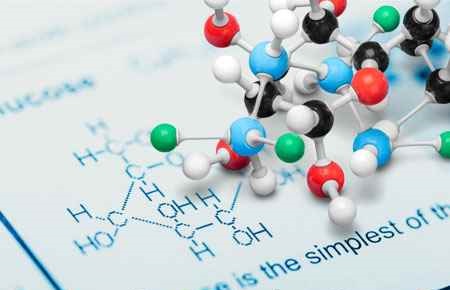 Chemistry, General
Chemistry, General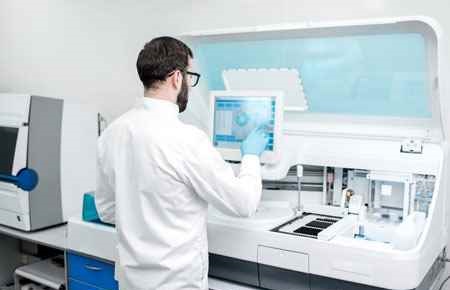 Analytical Chemistry
Analytical Chemistry Inorganic Chemistry
Inorganic Chemistry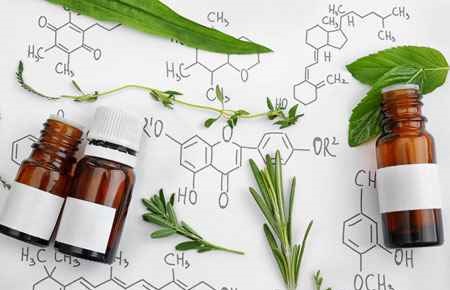 Organic Chemistry
Organic Chemistry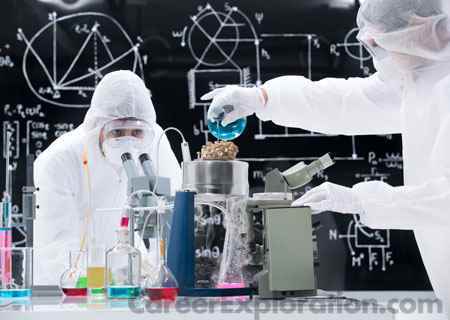 Physical Chemistry
Physical Chemistry Polymer Chemistry
Polymer Chemistry Chemical Physics
Chemical Physics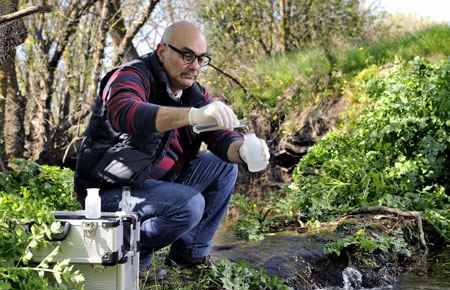 Environmental Chemistry
Environmental Chemistry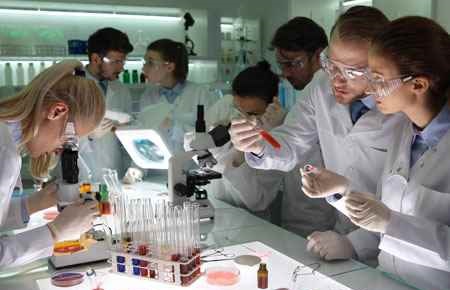 Forensic Chemistry
Forensic Chemistry Theoretical Chemistry
Theoretical Chemistry